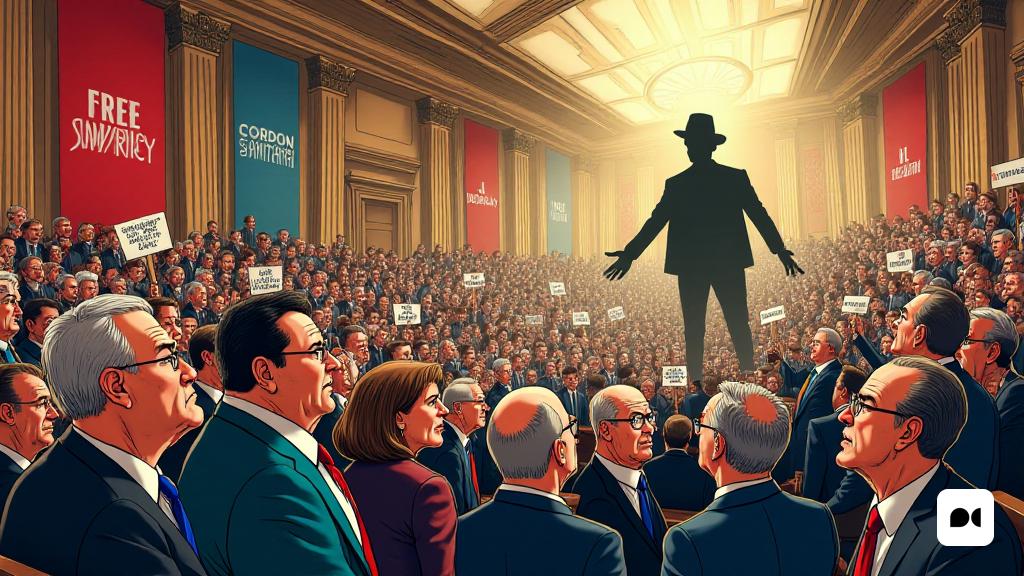The paradox of ‘sanitary cords’
In a world where the diversity of opinions should be considered an asset, the strategy of creating ‘sanitary cords’ to exclude dissident voices reveals an amazing contradiction. These political covenants, which seem to be cohesion within an ideology, often end up strengthening the positions that sought to weaken.
The consequences of isolating opponents
To isolate a political party or movement not only decreases its influence, but in many cases it strengthens it. History has shown that attempts to exclude, such as those against Vox or the AfD, have led to an unexpected growth of these formations, which have found in isolation an opportunity to attract new supports.
Decentralization of information and power
The current context of communication has evolved exponentially. New technologies have allowed alternative voices to emerge outside traditional channels. The media are no longer the only information agents; Social networks and other digital platforms have created an ecosystem where each individual can express themselves and share ideas.
A change in political dynamics
As communication decentralizes, the traditional notions of ‘right’ and ‘left’ are blurred. Contemporary society seeks more complex solutions than simple binary alternatives that have dominated political debate for decades. This paradigm shift requires a current election system review.
Reformulating suffrage in the digital age
The need to reformulate universal suffrage becomes apparent. How can a system that does not reflect the diversity of opinions and concerns of the population to continue to be valid? Figures like Silvia Orriols, with a minimum representation, show that the political impact can overcome traditional structures.
Toward a new participation model
Decentralized networks and new technologies, such as Blockchain, offer viable alternatives to conventional political participation. These tools can facilitate more transparent and inclusive communication, thus changing the way democracy is conceived.
Final reflections on the future of political debate
At a time when political debate is at a crossroads, it is essential that progressive forces reconsider their stance on the diversity of opinions. Exclusion has never been a sustainable solution, and true democracy demands a space for all voices. The question is whether the left will be able to adapt to this new scenario or if, on the contrary, it will continue to cling to obsolete tactics that will lead it to isolation.

